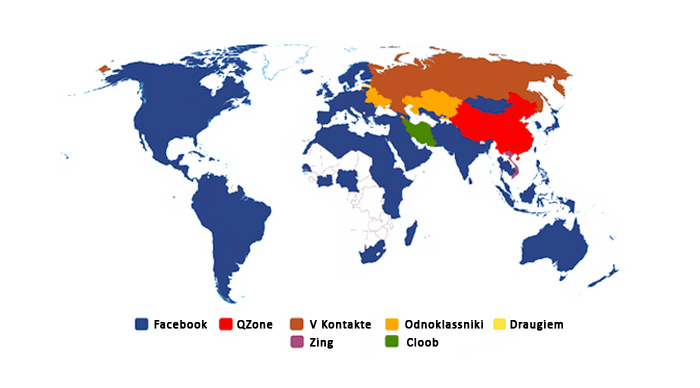 The social giant Facebook, along with the search titan Google, have dominated the advertising market worldwide. But Facebook has another strategy in the making. After it hits 15 million active users in Japan, the social network is aiming to tap into the growth of Japan's huge advertising market, and take advantage of Japanese consumers' advanced use of mobile internet.
The social giant Facebook, along with the search titan Google, have dominated the advertising market worldwide. But Facebook has another strategy in the making. After it hits 15 million active users in Japan, the social network is aiming to tap into the growth of Japan's huge advertising market, and take advantage of Japanese consumers' advanced use of mobile internet.
With 15 million active users, Facebook overtakes the previously dominant local rival Mixi. Mixi has 26 million registered members in Japan, higher than Facebook, but its 14.5 million active monthly user base has now been surpassed.
Mixi in Japan has several advantages if compared to Facebook. One of them is because Mixi appealed more to the security conscious: users can sign up anonymously and keep their identities secret. Besides that, Mixi is local, requiring a valid Japanese phone number for verification. This means that Mixi is only accessible to those living in Japan. Mixi is also selective by having a friend limit.
Mixi was growing well until it eventually struggles when Facebook increasing user base in the country is increasing.
The figures were revealed by COO Sheryl Sandberg when she visited the country. Sandberg said that Facebook is keen to grow its share of Japan's huge advertising market and take the advantage of Japanese consumers' use of mobile internet.
"Japan is a really important market for us. We have over 15 million users in this market. Only six months ago, we had 10 million users. It's an advanced market with very advanced mobile usage. A lot of innovation and technology happen here. It's also the second-largest advertising market in the world that is the basis of our revenue," said Sandberg.
"Mobile is a very good thing for Facebook. This is a social device. It's all about connecting people," she continued. "Mobile users are more engaged. Sponsored stories in news feeds are generating a million dollars a day. Half of them are on mobile. We had zero revenue on mobile at the beginning of the year."
Beside meeting potential advertisers, the Facebook COO also met Japan's Health Minister, a week after bringing its organ donor feature to the country.

Japan, as well as some other countries which have their own dominant social network, are the markets that Facebook has struggled to compete. From the figure above, as of June 2012, Facebook's dominance spreads fast, and able to compete with some of the popular local competitors.
Adding to Facebook's advantage in Japan, Mixi had a general downward trend in terms of monthly active users throughout the second quarter of 2012.
Some of the reasons of the decline was because information on Facebook is shared freely. Exchanging personal information such as phone numbers was a no-go, and anyone who did risked having their account erased. Many users in Japan wanted a bit more freedom and openness, and that is where Facebook excelled at.
Facebook's policy for users to use real name is certainly getting traction, especially among those people who have become weary on unsolicited messages from unknown people, a common thing that happens in sites like Mixi.
Facebook also got huge boost in user base after the release of The Social Network in January 2011 in Japan. Before, not many people are fond of Facebook.
The other trigger that increased Facebook user base was the 2011's earthquake and tsunami. While mobile devices cellular coverage was affected by the disaster, data channels that remained operational became the most effective way to keep in touch with others.
Twitter have had a good performance in Japan. The 140-character microblogging service became popular in the country way before Facebook come into dominance. This has made Twitter's CEO Dick Costolo pledged to increase its hiring efforts to grow sales there when he visited the country in April 2012. But after time passes, Twitter's growth went rather slow. With 18 million users and counting, it's possible that Facebook could overtake Twitter in Japan sooner or later.